
Kelly Ripa praises benefits of going through menopause: ‘I love not getting my period’
While women have long complained about the negatives of menopause, Kelly Ripa has recently discovered one benefit of going through the process. In a recent episode of her podcast, Let’s Talk Off Camera With Kelly Ripa, the Live With Kelly and Mark host discussed an under-appreciated aspect of menopause that she recently experienced herself. “I love not getting my period,” Ripa, 53, told her podcast guest and her real-life hormone doctor, Dr Erika Schwartz. The TV personality said that she experienced the beginning of menopause during the Covid-19 pandemic. Menopause, according to the Mayo Clinic, marks the time in a person’s life when their menstrual cycle ends and they no longer get their period. However, Ripa recalled the moment she learned of a main upside to menopause - the ability to wear white pants without fear of getting her period. “My first Memorial Day through Labor Day after menopause… it was the summer of the white pants because I never had to worry about wearing white pants,” Ripa recalled. The All My Children alum went on to speak with Dr Schwartz about the misconceptions of menopause, and how many people still consider the topic to be taboo. “People still whisper the word menopause,” she said, adding that “the information is still so hidden”. Her hormone doctor agreed, noting that “we’re still in the Dark Ages” when it comes to menopause and described the process as “like a bad secret”. Ripa said that even her friends of the same age are in denial going through menopause. She revealed that some of her friends routinely “tell me they still get their periods regularly”, while others consider the process to be “embarrassing”. “They’re talking to me, an open book, and still cannot bring themselves to talk about having gone through menopause. It is too scary for them to acknowledge,” she said. Dr Schwartz maintained that some women have trouble opening up about menopause because they feel it’s a sign that they’re “no longer useful” in society. “Because, in this day and age, there’s still a lot from yesterday’s day and age that has permeated the society and culture,” the doctor said. “And we think that being aged beyond menopause, we’re no longer useful.” “The moment you’re no longer fertile, you’re not useful,” Dr Schwartz continued. “I think you’re very useful. That’s when you have the information, the experience. You have so much to bring to the table, that I think every woman should feel great about herself.” Ripa has been married to husband Mark Consuelos since 1996. The longtime couple share children Michael, 26, Lola, 22, and Joaquin, 20. The TV host previously revealed that when she first started going through menopause, she mistakenly thought that she was pregnant. Speaking to Haute Living about her book, Live Wire: Long-Winded Short Stories, in 2022, she recalled the moment she believed her husband had accidentally “got [her] pregnant”. “I started taking pregnancy tests daily, but then Mark sort of gingerly said: ‘Could there be another reason why you’re not getting your period?’ and me saying: ‘What other reason could there possibly be?’ He really had to walk on eggshells here [by explaining to me that I was probably going through menopause],” Ripa said. However, she ultimately felt relieved that she wasn’t pregnant. “I was really grateful that I was not going to have to explain to my kids that they were about to meet their new sibling,” she joked. Read More Kelly Ripa says she thought she was pregnant when she first started going through menopause Viewers applaud Kelly Ripa and husband Mark Consuelos’s ‘great chemistry’ after Live co-hosting debut Kelly Ripa says she worked out of a janitor’s closet for years before ABC gave her a permanent office Teenager received a ‘zero’ at school because he didn’t have class supplies As transphobic hate crimes rise by 11% in a year, how to be a better ally All the big-ticket celebrity donations to Selena Gomez’s Rare Impact Fund Benefit
2023-10-06 04:55

As transphobic hate crimes rise by 11% in a year, how to be a better ally
Transgender hate crimes have increased by 11% in England and Wales, according to new data. Statistics from the Home Office found transgender hate crimes increased by to 4,732 offences in the year ending March 2023. The rise could be partly down to public discussion by politicians, the Home Office said. “What we’re seeing in today’s Britain is a horrifying reality of anti-trans narratives that are spreading across media and from high profile politicians, and the Home Office themselves have admitted it is a likely cause of rising violence,” Robbie de Santos, director of external affairs at LGBTQ+ charity Stonewall, told the PA news agency. “We can’t be complacent about any sort of divisive or dehumanising rhetoric, or failure to deliver on policy to protect our communities. “As a survivor of a violent attack myself, I want everyone to know you’re not in this alone. We’ve proven time and time again, that when we come together as a community we can demand and create true change.” The data comes a day after the prime minister Rishi Sunak weighed in on the debate around transgender rights at the Conservative Party Conference. “We shouldn’t get bullied into believing that people can be any sex they want to be. They can’t, a man is a man and a woman is a woman. That’s just common sense,” Sunak said. Health Secretary Steve Barclay used his speech at the conference to propose a ban on trans women from female NHS wards. With many members of the transgender community feeling threatened, what can you do to support anyone struggling? Ambassadors for LGBTQ+ young people’s charity Just Like Us share their advice for allies… Talk about it Your loved ones may not know anyone who is trans, or understand what it means to be transgender. “I need friends and family to keep talking and taking a stand against transphobia,” explains Charlie Hall, 25. “Talk about it with your colleagues, friends and family. Trans people are a small minority and allies need to take action, show others that trans people exist and are just trying to live their lives.” Matty Robins, 20, adds: “Personally, my friends reposting Instagram posts from transgender people in need, or anything about Trans Day of Visibility [March 31] or Trans Day of Remembrance [November 20], for example, has been one of the biggest displays of allyship to me.” Reach out Every trans person may be facing something different. “Ask us how you can support us. Every person is an individual and reacts differently to the situation and therefore needs different kinds of support,” explains 22-year-old Carden Cappi. Challenge hate and discrimination “Trans people need allies standing up for us,” explains Robins. This could include: “Correcting people when they deadname (using the name someone was assigned at birth) or misgender a trans person, whether the trans person is there or not. Fighting for trans inclusion at school, university and in the workplace.” Instead of “calling out” someone, which Robins says can be “inflammatory and cause people to turn away from transgender allyship”, he recommends talking to them about what they just said. “They may not mean it or understand how something they say is perceived as transphobic.” Be willing to learn “Friends and family can be supportive by educating themselves,” explains Charlie Middleton, 24. There are lots of resources out there to help you learn more about the trans community. Books like The Transgender Issue by Shon Faye (Penguin, £10.99) and Juno Dawson’s The Gender Games: The Problem With Men and Women, From Someone Who Has Been Both (Two Roads, £10.99) are well worth a read. You can also follow trans activists on social media – including Charlie Craggs and Munroe Bergdorf – to learn more about the community. Read More Impact of relationships with AI chatbot programmes ‘worrying’, psychologist says Pokemon’s Detective Pikachu Returns and more top games of the week How to talk to kids about cigarettes and vapes, following Rishi Sunak’s smoke-free generation plans 4 must-have denim trends for autumn, from wide-leg jeans to split skirts Doorscaping: How to create a fabulous front door display for autumn More than a quarter of middle-aged women living with ‘metabolically healthy obesity’ – study
2023-10-06 00:21

Taylor Swift VIP concert and Paul Rudd movie night: The celebrity donations to Selena Gomez’s Rare Impact Fund
Selena Gomez has launched her inaugural Rare Impact Fund Benefit auction, and many A-list celebrities donated big-ticket events and items to raise funds for mental health awareness. On 4 October, the Rare Beauty founder celebrated the first annual Rare Impact Fund Benefit: A Night of Radiance and Reflection in Los Angeles. The event supported Gomez’s non-profit organisation, the Rare Impact Fund, which works to reduce the stigma surrounding mental health and expand access to mental health services and education for young people. Not only did the sold-out event help raise money towards the Rare Impact Fund’s mission of mental health awareness, but it was also attended and supported by a number of star-studded celebrities. Martin Short, Gomez’s Only Murders in the Building co-star, served as emcee and auctioneer for the evening. Of course, the legendary comedian didn’t stray from making the occasional joke or two. “I am proud to call Selena Gomez my friend, and not because she’s successful or rich; because she’s both,” said Short, per the Hollywood Reporter. “What makes tonight very important is we’re here to support youth mental health awareness. I don’t think there’s anyone in this room that hasn’t been touched by mental health and its issues and the pain it can bring a family. We are here to raise urgent funds for the young people who need them.” The benefit also featured a special performance by Grammy-winning singer HER and a DJ set from music producer and Gomez’s “Wolves” collaborator, Marshmello. However, it was the number of big-ticket items and experiences donated by celebrities that were the main event. Perhaps the most notable donation came from Gomez’s longtime friend Taylor Swift, who donated VIP tickets to her Eras Tour concert, listed on the Rare Impact Fund Benefit’s auction site for the starting price of $5,000. The item is no longer available, according to the Hollywood Reporter, because it’s already sold for a staggering $15,000. Gomez’s fellow Only Murders in the Building co-star, Paul Rudd, also donated quite the fan experience - a movie night with none other than Rudd himself for $5,000. Other sold auction items included a glam session with Gomez’s stylists and lunch with Camila Cabello. Pro soccer star Lionel Messi donated a signed jersey, which may explain Gomez’s meme-worthy attendance at his Inter Miami game in Los Angeles earlier this month. The Argentine player’s jersey is still available to bid for $6,000. Other items that have not yet been sold include VIP tickets to Luke Combs’ “Growin’ Up and Gettin’ Old” tour in Los Angeles, a signed banjo from Steve Martin, a luxury five-night Airbnb getaway to Mexico, and a four-night stay at the Four Seasons Resort in Maui. Gomez took the stage at the Rare Impact Fund Benefit on Wednesday, where she spoke about her own struggles with mental health. “This has been the culmination of a lifelong dream for me, but it has also stemmed from some of the darkest moments in my life,” the former Disney Channel star told attendees. “I struggled with the world inside my head for a long time and I felt lost and I felt hopeless at times. In 2020, I received my diagnosis of bipolar disorder and, to be honest, everything quickly changed,” she continued. “I actually got the knowledge and the answers I had been desperate for for so long, and understanding that obviously makes me become more aware of it, and I’m less afraid than I used to be. “With that knowledge, I could seek out the support I needed to be myself, to find my joy again, and tonight I’m very proud to say that I have. I’m working really hard every day and I’m so happy just to be alive and be here with you guys today.” The Rare Impact Fund, which Gomez founded in 2020, has a goal of raising $100m in the next 10 years to expand access to mental health services and education for young people around the world. While the “Lose You to Love Me” singer acknowledged that her mission “probably sounds really absurd,” she noted that it’s people like her little sister, Gracie, and “the world that she and her generation inherits” that inspires her to make the world “a kinder one, a clearer one, a more connected one, with support and access”. “It has been my ultimate dream to launch this fund and it’s probably the most important thing that I’ve ever done, and I just couldn’t be more proud of the Rare Impact team for the work that they’re doing,” Gomez added, before thanking the crowd for “everything you’re going to do tonight; it’s the hardest journey I’ve ever been on but by far the most rewarding”. Gomez first revealed she had been diagnosed with bipolar disorder - a mental health condition that causes episodes of mood swings - in 2020, when she appeared on Miley Cyrus’s Instagram Live series titled “Bright Minded”. During a wide-ranging interview with Rolling Stone published in November 2022, Gomez shared that she checked into a mental health facility in 2018 after experiencing her first bipolar episode. She opened up about the “dark” period in her “early twenties” when she “started to feel like I was not in control of what I was feeling, whether that was really great or really bad”. In her Apple TV+ documentary, My Mind & Me, Gomez described the fear she felt after receiving her bipolar disorder diagnosis. “When I first got out, I didn’t know how I’d cope with my diagnosis,” she recalled in the documentary, which was released last November. “What if it happened again? What if the next time, I didn’t come back? “I needed to keep learning about it,” she said of the condition. “I needed to take it day by day.” Gomez has also been open about her battle with the autoimmune condition lupus, which she was diagnosed with in 2014 and underwent a kidney transplant for in 2017. Read More Selena Gomez opens up about her mental health struggles: ‘Maybe it would be damaging to tell people who I am’ Selena Gomez opens up about bipolar diagnosis: ‘I’ve been to four treatment centers’ Selena Gomez reveals she may never carry children due to bipolar medication How to dress like Taylor Swift and Travis Kelce for Halloween 2023 NFL defends spotlighting Taylor Swift during Travis Kelce’s games Travis Kelce says the NFL is ‘overdoing it’ with their Taylor Swift coverage
2023-10-05 23:15
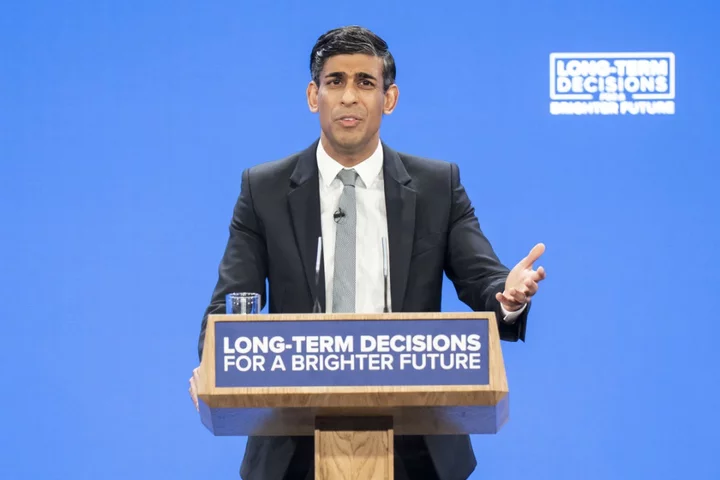
How to talk to kids about cigarettes and vapes, following Rishi Sunak’s smoke-free generation plans
Stopping the nation from smoking has long been a top priority for medical experts, families and governments, and PM Rishi Sunak has made his plans for the issues clear. At the 2023 Conservative Party Conference, Sunak said that the legal age for buying tobacco should rise every year from those born in 2009 in a bid to “try and stop teenagers taking up cigarettes in the first place”. He said: “A 14-year-old today will never legally be sold a cigarette” under new legislation he is proposing for England. The Prime Minister also said more must be done to “restrict the availability” of vapes to children, but what can be done by parents in the meantime? Here are the conversations to have with your children… The dangers of smoking “Starting smoking and vaping at a young age can have serious and long-lasting health consequences,” explains Dr Chun Tang, medical director and GP at Pall Mall Medical. “Nicotine is particularly harmful to developing brains. Young people are more vulnerable to nicotine addiction, which can lead to a lifetime of tobacco dependence. Nicotine impacts cognitive function and memory, potentially affecting academic performance. “Aside from the detrimental effect on cognitive ability as outlined above, smoking is, of course, a leading cause of various health problems, including lung cancer, heart disease, stroke, chronic obstructive pulmonary disease (COPD), and many others,” he says. “Smoking during adolescence can also interfere with the growth and development of the lungs, leading to reduced lung function. This can result in breathing difficulties and decreased physical performance.” The dangers of vaping Vaping isn’t a safe alternative, yet he sweet-smelling, plastic steam machines are rife. “Vaping is a relatively new phenomenon, and the long-term health effects are still not fully understood,” says Tang. “There is ongoing research to assess the potential long-term risks, including the development of chronic health conditions.” Vaping has been associated with various adverse health effects, including lung injuries, respiratory problems, and cardiovascular issues, he notes. “Some of the chemicals found in vaping aerosols can be harmful when inhaled into the lungs. “If a smoker takes approximately 15 puffs of a cigarette before putting it out, then we can safely assume that a 600-puff disposable vape is equivalent to around two packs of cigarettes. “Some reports suggest young people can get through as many as 7 vapes a week, the equivalent of 14 packets of cigarettes. “That is an enormous amount of nicotine and so we can expect to see the health risks posed by nicotine to be [more] exacerbated in vapers than smokers – which could be severely impacting cognitive function and affecting academic performance.” It’s essential, he says, for parents, educators, and healthcare professionals “to educate young people about the potential risks of vaping and smoking and provide support and resources for those who want to quit”. Don’t lecture them Try to be open and curious rather than defensive and angry if your child is smoking or vaping. Dr Kerry Irving, senior clinical psychologist at online mental health platform Kooth, says: “Approach any conversation to understand why the young person smokes or vapes rather than to lecture, as the latter can cause people to shut down.” Consider available supportThere may be resources online and in person that might help your child, from the NHS to TikTok creators tracking their quitting journey. “Suggest accessing external support – encourage the young person to see their GP or to make use of some of the free Stop Smoking initiatives online or in your local community,” Irving says. Be sympathetic to relapse Expect wobbles. If your teen or child is quitting smoking or vaping try to stop accept that overcoming an addiction is not easy and recovery is not linear. “Relapses are an important part of changing any behaviour long term,” says Irving. “You can help the young person learn from these by gently encouraging them to reflect on what went wrong and helping them plan for how to try again.” Read More Charity boss speaks out over ‘traumatic’ encounter with royal aide Ukraine war’s heaviest fight rages in east - follow live 4 must-have denim trends for autumn, from wide-leg jeans to split skirts Doorscaping: How to create a fabulous front door display for autumn More than a quarter of middle-aged women living with ‘metabolically healthy obesity’ – study
2023-10-05 19:56

Mother sparks debate after claiming her son received a ‘zero’ grade because he didn’t have classroom supplies
A mother has sparked a debate after revealing that her son received a “zero” from his teacher because he didn’t bring in “classroom supplies”. The parent, Shanitta Busby, shared a recent video to TikTok about her 13 year old, in which she explained that he recently started at a new school. She noted that, prior to the middle schooler’s first day, she bought him “new school supplies,” since the list of supplies needed was “a little different” than ones she’d seen before, and she “wanted him to be prepared”. Busby said that while her child’s first week at school went well, he came home the second week and told her: “My teacher said we need to have classroom supplies.” She responded to her son by saying it was strange that his teacher wanted him to have certain “classroom supplies”. “I’m like: ‘That’s weird, because we got you everything on the list that you would need for the class. And you’re not going to be using any classroom supplies,’” she recalled. “And so I left it at that.” However, according to Busby, the teacher later told her son that she’d “give [him] a zero if [he] didn’t turn in the classroom supplies”. While the parent questioned why her son was being graded for having the items, she said that she still went on to get the “classroom supplies,” which included things like tissues, Clorox wipes, hand sanitiser, pencils, Expo markers and red pens. Although she gave her son these supplies to turn in to his teacher, she said that the following week, her son “still had a zero”. She explained that when she emailed the teacher about the grade, she also claimed that parents shouldn’t be responsible for “supplying” the items needed in the teacher’s classrooms. “I email the teacher and I’m like: ‘Hey, I’m kind of concerned because my student has an 83 in the class, and everything else in the class is 100s and 98s. And he still have a zero for something called classroom supplies,’” she recalled. “I was like: ‘We bought the supplies anyways, but I don’t feel like it’s the parent’s responsibility to supply your classroom.’” She also told the teacher that she didn’t “think it was appropriate to assign a grade to students based on whether or not they’ve supplied” their teacher’s classroom. According to Busby, the teacher responded to the email by saying: “I appreciate an involved parent, and I’ll update his grade today.” However, the teacher didn’t address the parent’s concerns about the grade itself existing. @shanittanicole Am I doing too much? #fyp #school ♬ original sound - Snooze ❣️ “She said nothing about the fact that we shouldn’t have to supply your classroom with supplies,” she explained. “So I emailed the principal, I might be extra, but I just wanna see what’s going on. Why do I have to buy supplies for the classroom? In the comment, she clarified that she and her husband bought the supplies that were needed for his homeroom, as he’s in middle school. She then specified that the grade he got for “classroom supplies” was for only his math class. Busby later shared a follow-up video with a screenshot of her son’s grade in the class, noting that there were two different grades for his “supplies”. While he got 90 for his “homework/classwork,” in the “supplies section”, he initially had a zero under the “participation” for “supplies”. However, his zero was then updated to a 100, giving him a 98 in the class. She then emphasised why she contacted the principal about her son’s “supplies” grade, adding: “Why are you assigning a grade for additional school supplies for the classroom? That’s what was wrong to me.” In the comments of the two videos, which have received more than 1.5m views combined, many people came to the parent’s defence, noting that some parents can’t afford all classroom supplies, so children’s grades shouldn’t be penalised for that. “Classroom supplies are not graded. She is not to force parents to get it,” one wrote, while another added: “That is so unfair!! Especially for the kids whose parents CAN’T afford groceries let alone classroom supplies!!!” “Somebody has to buy supplies and it’s not fair to the teacher. BUT they pool the supplies because everyone can’t afford them. To grade that is ridiculous,” a third commented. On the other hand, some parents acknowledged that they would get certain school supplies for their children, and defended teachers from having to buy them. @shanittanicole Replying to @In the view Graded School Supplies Part 2 #fyp #school #xybca ♬ original sound - Snooze ❣️ “I will buy anything my kids’ teachers need. I usually send $200 through a cash app per 1/4. Teachers shouldn’t have to buy either,” one wrote, while another added: “The grade I don’t agree with! As a former teacher, I spent a lot of my personal money on supplies. New teachers don’t even get a stapler.” “Teachers don’t make anywhere near enough to supply everything for classrooms, like tissues if your kid has a runny nose. Or wipes to clean messes,” a third wrote. Speaking to Insider, Busby said she’s still waiting to hear back from the principal on how the situation is being handled. She also shared her belief that the school districts should be giving supplies needed in classrooms, rather than having parents or teachers pay for it. The Independent has contacted Busby for comment. Read More Six-year-old girl with special needs found wandering busy road after school sent her home Father praised after teaching his daughters how to set expectations when dating men A Georgia woman confided in a friend about her relationship’s ‘tough times’. Four days later she was dead Man inundated with criticism after judging mum on her phone Brian Austin Green details stroke-like symptoms caused by diet: ‘I couldn’t speak’ Woman reveals how she discovered she’s allergic to water
2023-10-05 06:18

Brian Austin Green says he had stroke-like symptoms caused by his diet: ‘I couldn’t speak’
Brian Austin Green has revealed he suffered from stroke-like symptoms for four years that were ultimately caused by his diet. The Beverly Hills, 90210 alum, 50, recently opened up about his major health struggles - which included vertigo and ulcerative colitis - that led him to be bedridden for three months and unable to speak, read, or write. In an episode of the Sex, Lies, and Spray Tans podcast with Dancing With the Stars dancer Cheryl Burke, released on 2 October, Green revealed that it wasn’t until a “kinesiology and Eastern medicine” specialist discovered he had “internal inflammation” from his diet of gluten and dairy that he was able to take control of his health. “I spent four and a half years recovering from stroke-like symptoms without ever having had a stroke,” the Anger Management star said. “I couldn’t speak. I couldn’t read. I couldn’t write.” When asked by podcast host Burke if his “neurological” issues were a result of having vertigo - a sensation that the environment is spinning in circles - Green explained that his vertigo symptoms were just “one stage” of his health problems. “I had ulcerative colitis and then I had vertigo,” he said. According to the Mayo Clinic, ulcerative colitis is an inflammatory bowel disease that causes inflammation and ulcers in the digestive tract. “I was bedridden for like three months but both things were undiagnosable,” he continued. “Nobody could figure it out, all the specialists that I saw.” Burke asked whether his symptoms were a result of a car accident, seemingly referring to when Green and his ex-wife, Megan Fox, were struck in their vehicle by a drunk driver in December 2014. “No. It was dietary,” he replied. Despite getting an opinion from one of the top neurologists at Cedars-Sinai Medical Center in Los Angeles, and undergoing nearly 200 blood tests and two MRIs, his doctor was still unsure of what Green’s health issue could be. The actor recalled that his symptoms of “brain fog” were so bad that he once reintroduced his best friend of 25 years to his sister, who his friend had also known for more than two decades. Green shared that even reading Dr Seuss books to his children was difficult for his brain. “It was all undiagnosed by Western medicine, so I ended up having to finally find a doctor that is much more into, like, kinesiology and Eastern medicine,” he said. Once finding a specialist, the doctor told Green that his health condition was a combination of stress and consuming “gluten and dairy”, which caused “internal inflammation” in his system. These days, Green shared that he’s “fully recovered” from his stroke-like symptoms and his health has been “100 per cent” since then. Green is a father to five children. He shares son Kassius Lijah, 21, with ex-girlfriend Vanessa Marcil. The Desperate Housewives alum also shares sons Noah Shannon, 11, Bodhi Ransom, nine, and Journey River, seven, with ex-wife Fox. He and the Jennifer’s Body star were married from 2010 to 2021. In June 2022, Green welcomed his fifth child, son Zane Walker, with fiancée Sharna Burgess. Read More Brian Austin Green gets candid about how great co-parenting is with ex Megan Fox Brian Austin Green shuts down claim he’s a ‘bad father’ after defending Megan Fox over sons’ outfits Megan Fox hits back at US politician’s claim about her children’s clothes Woman reveals how she discovered she’s allergic to water More than a quarter of middle-aged women living with ‘metabolically healthy obesity’ – study Idris Elba reveals he’s been in therapy for over a year after work realisation
2023-10-05 00:57
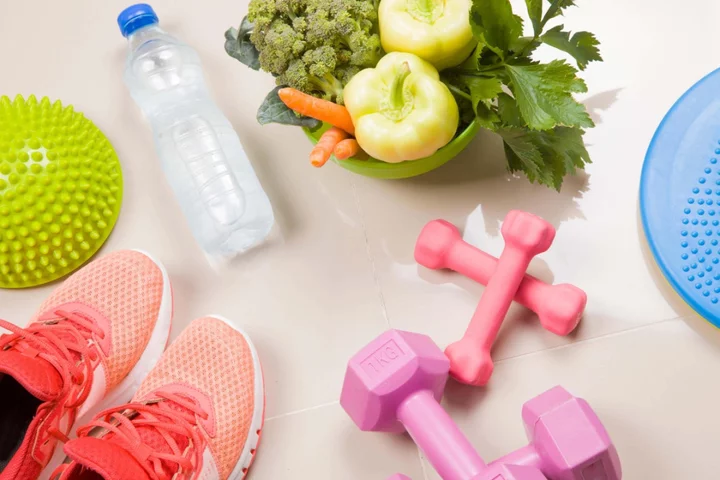
More than a quarter of middle-aged women living with ‘metabolically healthy obesity’ – study
Almost one in 10 middle-aged men and more than a quarter of middle-aged women in the UK are “fit but fat”, researchers have said, as they called for more to be done to help people reduce their weight. Academics said that there are large regional differences over levels of “metabolically healthy obesity”, which could be down to different diets or other lifestyle factors as well as ethnic and genetic differences. People who are “fit but fat” are considered to be obese by their body mass index (BMI) score but have none of the complications associated with obesity including abnormal blood sugar levels; high cholesterol; high blood pressures; type 2 diabetes or other signs of heart disease. The UK has similar levels seen in Sweden, Norway and Germany, experts said. The highest proportion of metabolically healthy obesity is observed in France and other Mediterranean countries such as Italy and Israel, experts told the the Annual Meeting of the European Association for the Study of Diabetes. There will always be people living with obesity who seem to be protected against obesity-related cardiometabolic diseases Prof Mattias Bluher One study shows that 8% of men and 27% of women in the UK aged between 40 and 50 are living with “metabolically healthy obesity”. Asked how many people in the UK are affected, Professor Matthias Bluher, of the University of Leipzig and Helmholtz Centre Munich in Germany, said: “The (UK) is very similar to situation Sweden, Norway and Germany. “There are populations in Micronesia or Asian populations where it is down to 2-5% only. “Some populations may be, despite large amounts of adipose tissue, better protected against comorbidities and Caucasian populations belong to those.” Prof Bluher said that healthy obesity is seen in a number of premenopausal women. It comes as Prof Bluher called for better weight management programmes for people who fit the profile. He pointed to previous work which suggests people who are “healthy obese” have a higher risk of coronary heart disease, cerebrovascular disease and heart failure compared to their in a normal weight range. “There will always be people living with obesity who seem to be protected against obesity-related cardiometabolic diseases,” he told the conference. “The concept that metabolically healthy obesity affected people may not benefit from weight loss strategies has been challenged by recent data. “A timely and personalised treatment of obesity should also be recommended to people living with healthier obesity.” Read More Charity boss speaks out over ‘traumatic’ encounter with royal aide Ukraine war’s heaviest fight rages in east - follow live Jonnie Peacock on Strictly Come Dancing representation: ‘It’s important to break people’s perceptions’ What you need to know about depression during menopause – as Carol Vorderman opens up Autumn pests to look out for and how to get rid of them in your home and garden
2023-10-04 16:58

Jonnie Peacock on Strictly Come Dancing representation: ‘It’s important to break people’s perceptions’
BBC One’s Strictly Come Dancing has been “fantastic” for disability representation, says Jonnie Peacock MBE – the show’s first amputee contestant. The sprinter and paralympian, who was partnered with professional dancer Oti Mabuse in 2017, helped pave the way for celebrities with disabilities, including presenters Rose Ayling-Ellis and JJ Chalmers. The new 2023 series sees cyclist and swimmer Jody Cundy – who, like Peacock, had his right leg amputated just below the knee – compete with Jowita PrzystaÅ‚, who lifted the glitterball trophy last year with Hamza Yassin. “For me, going on Strictly was important to attempt to break people’s perceptions and make them realise the reason that I would be a bad dancer would absolutely not be my leg,” says the 30-year-old. “My leg is actually one of my strong suits! “Rhythm,” he laughs, “That was more the problem.” Peacock – who became a household name after smashing the world record and claiming gold in the 100m T44 final at London 2012 Paralympic Games – said by appearing on the popular dancing show, he was “trying to get people to understand that we look at someone and we instantly judge what they’re able to do, and put them in a box”. The World Health Organisation estimates that 16% of the world’s population is disabled. “But when you look at your TV – especially 20 years ago – it [looked like] 0.1%, and the same with race and gender,” notes Peacock. “Now people are starting to realise that we want our world to be reality, and we want our [TV] world to encompass what it actually looks like. “It’s not just Strictly, pretty much all of the reality TV shows have disabled contestants in [now]. It’s so important. It’s a way to show that we are an individual, and that we have something to give.” Peacock was recently made an ASICS ambassador (“It’s really cool to be working with a brand who actually care about a lot of the things I care about – that it’s so much more than sport,” he says). And after a difficult summer on the track, he’s looking ahead to the indoor winter para season and the Paris Paralympics next summer. “I felt the worst I’ve felt in years, as soon as I got past 50 or 60 metres [during Paris Para Athletics World Championships in July],” says the sprinter, who later discovered he had hamstring tendinopathy. “I’d kind of lost the love of the event. Even though I love training, I didn’t enjoy competing too much. Even though I love doing it, it was bringing me a lot of misery.” As well as injury niggles, he’s been having issues with the alignment of his prosthetic blade. For para athletes, this technical side of the sport adds additional complication. “I used to love that, but there was a couple of years where I just felt off balance and didn’t realise why,” he says. “We had to play with so many different settings… that was the moment where I was constantly [thinking], ‘I wish I had a foot there where it should be, I wish I didn’t have to worry about setting this up and could just go for it’.” Peacock was five when he almost died from meningitis and his right leg had to be amputated – a time he has few memories of (“I have one flashback in the back of the car being rushed to hospital, with my Power Rangers duvet wrapped around me”). Growing up, he had several bone revision surgeries – “because once you’ve had an amputation, the bone will carry on growing,” explains Peacock. Now though, he’s showing no signs of slowing down, even though sprinter careers are notoriously short. For the next Paralympics, “It’s gold or nothing – Felix [Streng of Germany] has got it now [after Tokyo 2020], but my plan is to hopefully make him the shortest Paraylmpian champion ever.” After being so dominant in the 100m for so long (he’s a two-time Paralympic gold medalist, two-time world champion, and two-time European Championship gold medalist), what keeps him motivated to win? “It’s probably greed,” he laughs, “It’s just never enough, you just want more, it’s an addictive feeling. It’s like you’re just constantly chasing to try be a better athlete – a better version of you.” And with age has come a better understanding of how his own happiness and mental health is tied to his physical health. “I don’t exercise for a period of time, I can get a little bit almost, not depressed, but edging on that, just not happy, very lethargic,” he reveals. Youth comes with a blissful naivety about health, he says. Before, “I never really realised that every time I exercised, I felt better afterwards. Now [my body] is more sensitive. I don’t feel fantastic 24/7, creaks and aches start to appear, grogginess, fatigue…” These days, when he’s not feeling his best, he’ll start a day with a 15-minute indoor bike session at home, where he lives with para athlete girlfriend Sally Brown. “I hate it, I literally hate it!” he laughs. “I want to sit on the sofa and watch TV [instead]. I feel atrocious for 10 minutes afterwards, but then I bounce up so high for the rest of the day, I’m so happy. “The closest thing that affects my mental health is my [physical] health. If I eat like crap, if I sleep like crap, if I don’t exercise, I will be in a bad mental health space. If I exercise, even just a little bit, if I eat well, if I sleep well, I don’t feel like that. It’s understanding there’s a cause and effect relationship to a lot of things.” He swears by the feel-good endorphins of a freezing cold shower everyday. “My friend told me about Wim Hof [the Dutch endurance athlete known as The Iceman] six or seven years ago. I hate hot showers now, to the point where I was in a hotel once and had to get the engineer to come up because the shower didn’t go cold [enough].” Peacock says he tries to remember that “life is a game” and “a gift”. He continues: “We waste it because we take it too seriously. And we’ve been forced to take it too seriously by the outside world – we’ve been given pressures, we’ve been given expectation, and you end up allowing the stress to enclose you and take you away from that childhood mentality of just going out and having fun. “When you’re dead, you’re not going to be sitting there going, ‘Oh, I wish I’d kept my boss a bit happier’.” Jonnie Peacock is sponsored by ASICS. To find out more visit asics.com. Read More Charity boss speaks out over ‘traumatic’ encounter with royal aide Ukraine war’s heaviest fight rages in east - follow live What you need to know about depression during menopause – as Carol Vorderman opens up Autumn pests to look out for and how to get rid of them in your home and garden How can I tell if my child has ADHD?
2023-10-04 15:17

Idris Elba reveals he’s been in therapy for a year due to ‘unhealthy habits’
Idris Elba has revealed that he’s been in therapy for the past year because of “unhealthy habits” affecting his personal life. The British actor, 51, recently opened up about his mental health on the Changes with Annie Macmanus podcast. Speaking on the podcast released on 2 October, Elba said that he’s been in therapy for about a year. “In my therapy I’ve been thinking a lot about changing,” he said. “It’s not because I don’t like myself or anything like that. It’s just that I have some unhealthy habits that have just really formed.” “I work in an industry that I am rewarded for those unhealthy habits,” Elba added. The Luther star admitted that he’s “a workaholic” and explained how taking on new work projects has had a negative impact on his daily life. “I’m a workaholic. I’m an absolute workaholic,” he said. “And that isn’t great for life, generally. Nothing that’s too extreme is good. Everything needs balance.” However, The Wire star acknowledged that the entertainment industry rewards “someone that can go: ‘I’m not going to see my family for six months.’ And I’m in there grinding and making a new family and then leave them.” Despite admitting that he’s a workaholic, he noted that what makes him most “relaxed” is surprisingly working. Elba, who often moonlights as a DJ, went on to share that his at-home studio only further fuels his workaholic tendencies. He continued: “I could work 10 days on a film, underwater sequences holding my breath for six minutes, and come back and sit in [the studio] and [feel relaxed], more so than sitting on the sofa with the family - which is bad right? “This is the part where I’ve got to normalise what makes me relaxed, it can’t be all work,” he added. In 2020, a study of 2,000 UK office workers found that four in 10 British adults admitted that they’re workaholics. The study showed that one in six workers frequently spends more than 11 hours a week working when they are away from the office, such as checking emails and making calls. Plus, only three per cent of workers surveyed said they leave work on time every day. In the study, some of the signs of a workaholic included never taking a lunch break, working on weekends, and always being the last one to leave the office. Ignoring family can also be a sign of working too much, as one in five adults admitted they’d take a work call or check emails while with their family. Elba is married to Canadian model Sabrina Dhowre. The two began dating in 2017 and were engaged in February 2018. They tied the knot on 26 April 2019 in Marrakesh. He is also the proud father to two children. Elba shares daughter Isan, born in January 2002, with ex-wife Kim Norgaard and son Winston, born in April 2014, with ex-girlfriend Naiyana Garth. Read More Idris Elba says ‘disgusting’ race discourse put him off James Bond role David Beckham explains why he never sought therapy after 1998 World Cup match left him ‘depressed’ Dove Cameron opens up about feeling ‘incredibly suicidal’ to destigmatise depression Having an overweight pet could cost owners over £1,000 in vets’ bills What you need to know about depression during menopause – as Carol Vorderman opens up Linda Evangelista describes relationship with Gerald Marie as a ‘MeToo marriage’
2023-10-04 00:28
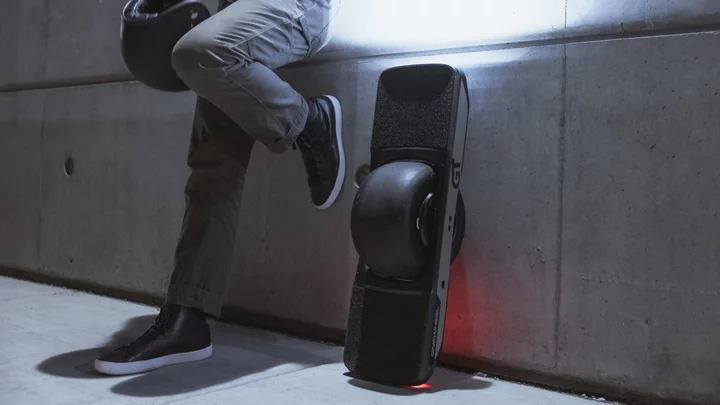
All Onewheel Electric Skateboards Recalled After 4 Deaths
If you own a Onewheel electric skateboard, you should stop using it immediately. The company
2023-10-03 23:18
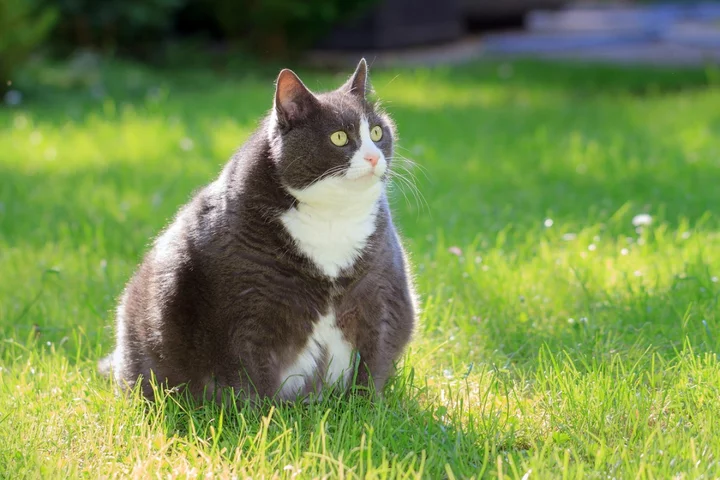
Having an overweight pet could cost owners over £1,000 in vets’ bills
Having an overweight pet could cost owners £1,500 in vets’ bills per visit, claims data has revealed. Common health problems caused by excessive weight include cruciate ligament injuries, urinary tract disease, diabetes and arthritis. Addressing cruciate ligament injuries can mean swallowing a whopping bill of £1,578.28, and urinary tract disease costs for cats are skyrocketing to a jaw-dropping £752.06. Data from pet insurer ManyPets shows, on average, pet owners are forking out £682.65 for a trip to the vets for diabetes, while arthritis costs are coming to £476.61. However, 51 per cent of cat and dog owners are already concerned about their pets’ weight, a separate poll of 2,000 pet owners found. And nearly one in five (18 per cent) with a cat or dog could encounter these bills soon as they believe their pet already is carrying more weight than it should. With almost a fifth (19 per cent) admitting they are already shelling out more to tackle their pets’ fluctuating size. The research was commissioned as part of the ManyPets ‘Why Weight?’ report and launch of its Obesity Learning Hub. Steven Mendel, chief executive and co-founder of the pet insurer, said: “We understand it can be difficult to resist rewarding pets with extra treats, and heart-breaking to say no to them when they’re asking for more food. “But, with obesity associated health problems becoming more and more prevalent, we urge pet parents to think twice to save their pets. “We’re proud to have launched our Obesity Learning Hub to offer tips and veterinary approved advice for pet parents everywhere.” The research went on to find, with the rising cost of living still looming large for many pet owners, 22 per cent have been forced to make cutbacks to their pet’s lifestyle. Almost half (49 per cent) of these are now opting for lower quality brands of food, and 37 per cent have reduced their spend on healthcare. But 88 per cent believe they would be able to recognise the signs a pet is potentially getting to an unhealthy weight, yet only 31 per cent regularly keep an eye on their pet’s weight. Moreover,39 per cent will only visit the vets in an emergency – all of which point to an increase in weight going unchecked. In a bid to help keep weight down, 76 per cent do try to keep their four-legged friends as active as possible, while 75 per cent limit the number of treats or table scraps they give out. The study, carried out via OnePoll, found of those with an overweight pet, 22 per cent feel as if their cat or dog is ‘always hungry’. While a puzzled 19 per cent scratch their heads over their pet’s weight as they don’t think they eat an excessive amount. Steven Mendel added: “While many pet owners believe it should be straightforward to spot if their cat or dog is putting on weight – it’s often easier said than done. “In most cases, gaining weight is very gradual, meaning it can be trickier to identify - especially if pets are not attending the vet regularly. “We’re hopeful that with the right course of action and identifying the signs early, longer term pet health problems can be avoided in the future.” Read More Cat owner reunited with pet Tux after emotional Lyft ride saga Dogs’ facial markings could play a role in how close they are with owners Moment cat stuck inside boat’s hull after fire is rescued by firefighters Cat owner reunited with pet Tux after leaving her in a Lyft What you need to know about depression during menopause – as Carol Vorderman opens up Linda Evangelista describes relationship with Gerald Marie as a ‘MeToo marriage’
2023-10-03 21:45

What you need to know about depression during menopause – as Carol Vorderman opens up
Carol Vorderman has opened up about the “really black” thoughts she experienced during menopause. The former Countdown host, 62, admitted she had struggled with “severe depression” – despite there being “nothing wrong” in her life. “When I went through it, I had severe depression for about six months. I think it was 2015. There was nothing wrong in my life, I had made a lot of money, my kids were fine, my mum was fine,” Vorderman said, speaking on the Postcards From Midlife podcast, hosted by Lorraine Candy and Trish Halpin, this week. “Yet I would wake up in this huge bed in this huge house, I’ve got a swimming pool outside and all of that, and I just thought, ‘What’s the point?'” She added that she understands “much more now clinical depression, where you go, ‘I can’t go through this again, how can I make this stop’, and those thoughts of, ‘Well, there is obviously one way to make this stop’.” Vorderman had previously opened up about her menopause experiences during an appearance on ITV’s This Morning last year – where she revealed she had started found “bespoke HRT” helpful for managing her symptoms. By speaking out, the broadcaster and author has shone a light on the ways menopause can impact mental health. So, why does this happen, and what do people need to know? “Women may become depressed in menopause due to the change in hormonal balance. Low mood, depressive symptoms and anxiety are often the first symptoms of perimenopause,” said intimate health expert Dr Shirin Lakhani of Elite Aesthetics, who is set to be a speaker at Pause Live! 2023, a menopause event taking place in London in November. “The symptoms of perimenopause and menopause in themselves can trigger mental health problems and cause women to become depressed,” Lakhani added. This can manifest in a wide range of ways. It could be linked with the impact menopause symptoms have on somebody’s work life and relationship for example, or due to physiological changes people are dealing with. “The lack of awareness regarding menopausal symptomatology may result in needless anxiety for patients and a feeling of helplessness. Early symptoms also include difficulty concentrating, often known as brain fog. Many women also experience relationship difficulties due to the perimenopause and menopause, whole family dynamics can change, as partners and family members do not know how to support women,” said Lakhani. “A lot of women I speak to have no idea what is going on and feel they are going completely crazy. Even if it’s just having someone to listen to and acknowledge something is going on [can be] very helpful, and once they are on hormones (HRT), they often feel like they have got themselves back again.” Keep an eye out for symptoms It’s important to note that not everybody’s experience is the same, and some people do not experience severe symptoms during menopause. However, Lakhani added that “the link between menopause and poor mental health must be reviewed”, and some people may experience “thoughts of suicide”. Lakhani continued: “If you already have a pre-existing mental health condition, it is also possible that the symptoms of menopause will cause a relapse or change to your mental health too, so people need to be aware of this.” Can you protect yourself from menopausal depression? While there are common symptoms that apply to menopause, exactly how it will impact each individual can be unpredictable too. Knowledge and awareness of what’s going on is a helpful starting point. Generally speaking, Lakhani said there are measures people can take to help manage menopause. But the most important thing if you are struggling with your mental health for any reason is to seek support. “Certain lifestyle factors can affect how you feel during the menopause. Don’t smoke and try to limit alcohol, get plenty of rest by keeping to regular sleep routines, even if you struggle to sleep. Eat a healthy diet and try to eat foods with a lot of calcium, such as kale or broccoli to keep bones healthy,” suggested Lakhani. “If you are struggling with your mental health during menopause, I would recommend going to your GP or considering counselling.” Read More Charity boss speaks out over ‘traumatic’ encounter with royal aide Ukraine war’s heaviest fight rages in east - follow live Autumn pests to look out for and how to get rid of them in your home and garden How can I tell if my child has ADHD? Why hasn’t my apple tree produced much fruit this year?
2023-10-03 20:56
You Might Like...
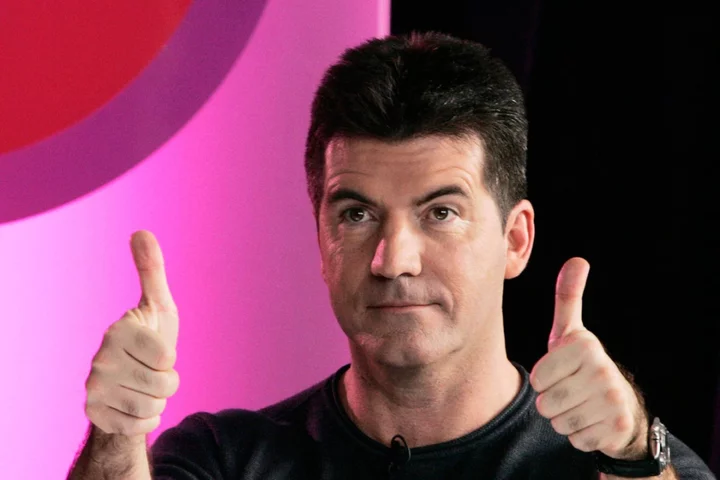
As Simon Cowell shares positive therapy experience, how can it help even if you aren’t in crisis?
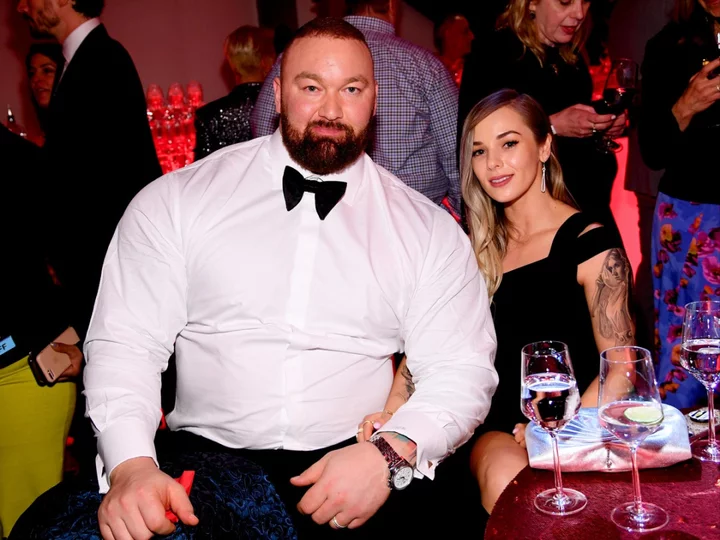
Game of Thrones star Thor Bjornsson announces ‘unbearable loss’ of baby after stillbirth

Ice-T reveals his and Coco Austin’s 7-year-old daughter still sleeps in their bed

6 triggers asthma sufferers should watch out for this summer

Some children avoid sleepovers due to fears of wetting the bed

Lindsay Lohan’s mum Dina says she gave birth ‘two days earlier’ than her due date
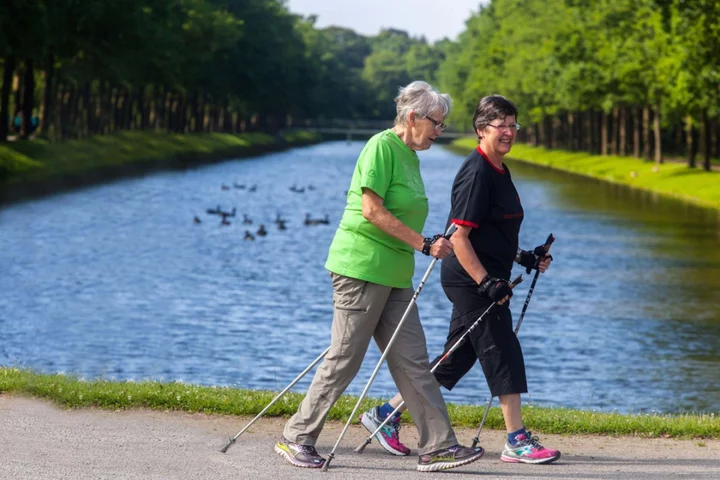
World Osteoporosis Day: The risk factors and early warning signs everyone needs to know about

Jennette McCurdy says her mother would ‘measure her thighs’ and ‘weigh her daily’ when she was 11
